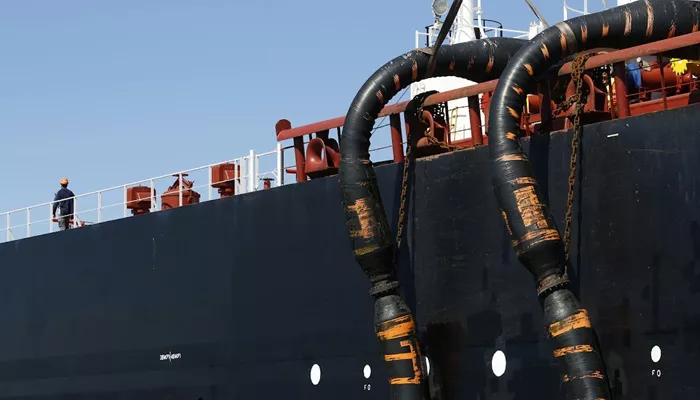Indian Oil Corporation (IOC), the largest refiner in India, has secured 7 million barrels of crude oil through spot purchases from the Middle East and Africa. This includes a rare acquisition of Abu Dhabi’s Murban crude, as the company navigates potential disruptions in Russian oil supplies due to looming U.S. sanctions.
IOC’s move to buy significant volumes of crude comes after the U.S. imposed sweeping sanctions on Russian producers and shipping last Friday. These sanctions are expected to further disrupt Russia’s already tight oil supply and exacerbate global shipping shortages, particularly impacting Russian crude exports.
The Murban crude cargo, which was sold to IOC by Totsa—an arm of French energy giant TotalEnergies—amounts to 2 million barrels. The deal was done on a delivered basis, with the cargo being sold at a premium of at least $5 per barrel over Dubai’s benchmark, one source revealed.
The IOC’s purchase signals a broader trend among Indian refiners, who are ramping up spot market purchases of Middle Eastern crude to replace Russian supplies. The U.S. sanctions on Russian oil have already affected the flow of low-sulfur Arctic oil grades, including Novy Port, ARCO, and Varandey, which have traditionally been supplied to Indian refiners.
In addition to the Murban purchase, IOC has also secured other significant spot cargoes, including a very large crude carrier (VLCC) each carrying 1 million barrels of Nigeria’s Agbami and Akpo crude, and 1 million barrels of Gabon’s Rabi Light from Shell. Another VLCC containing 1 million barrels each of Agbami and Angolan Nemba crude was purchased from Chevron.
Indian refiners are expected to issue additional tenders for spot purchases in the coming weeks, as they look to shore up supplies in light of the disruptions to Russian oil.
IOC had also recently floated tenders for sour and sweet crude to be loaded between late February and early March, as part of its ongoing efforts to secure diverse sources of crude oil.
Meanwhile, spot premiums for Middle Eastern crude continued to surge, reaching their highest levels in over two years. The price spike is attributed to heightened demand from major importers such as China and India, who are looking to replace Russian and Iranian oil supplies impacted by international sanctions.
As the market adjusts to the evolving dynamics of global oil trade, IOC’s strategic acquisitions highlight India’s efforts to safeguard its energy security amidst tightening global oil supplies.


